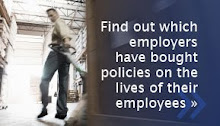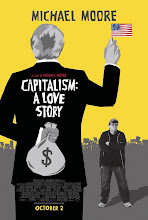
"Hey, we just want to make sure that when the janitor dies, our company doesn't go out of business. So we insure him for a few tax-free millions."
Many of us may not know it, but we may be worth more to our employers dead than alive.
The so-called dead peasant, or dead janitor insurance is insurance purchased by companies on low-level employees.
This practice is generally done without the knowledge of the employee. When the employee dies, the family receives no benefit. Instead the face value of the policy goes to the company, tax-free.
This insurance is also known as corporate-owned Life Insurance or COLI.
Prior to the 1980s, insuring lower level employees by corporations was not allowed; there was no “insurable interest” in the employees’ survival.
Companies could not argue there would be financial hardship if file clerks, janitors or nonessential managerial personnel perished.
The rules for insurability were designed to prevent life insurance from providing an incentive or avenue to profit from ones death.
Insurance companies aggressively lobbied state insurance departments to modify the rules.
The net effect allowed insurance companies to sell janitor insurance; without regulations or guidelines.
The rules in most states are unclear whether employers are obligated to inform workers if they are covered by COLI.
Insurance codes in most states provide little help, if any, to an employee in discovering out whether a company has insured them, or the amount of the death benefit.
Nor can family members ascertain if a current or past employer collected, or if they will collect.
~



nice
ReplyDeleteI am not able to understand the detail you have posted in this article about janitor insurance. Even I am learning about this policy very first time so is finding difficult to understand its meaning.
ReplyDeletejanitor insurance